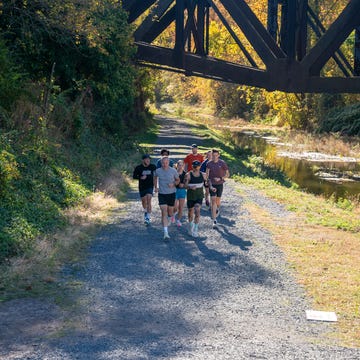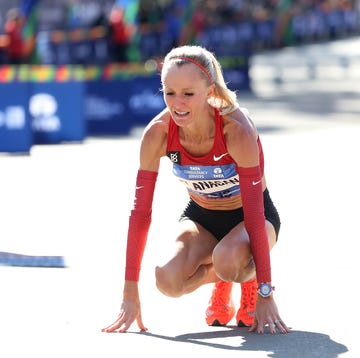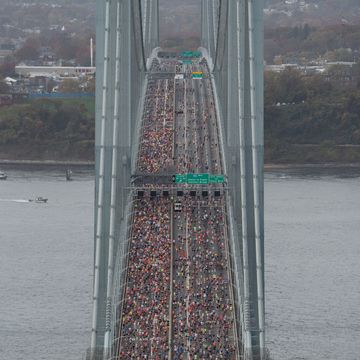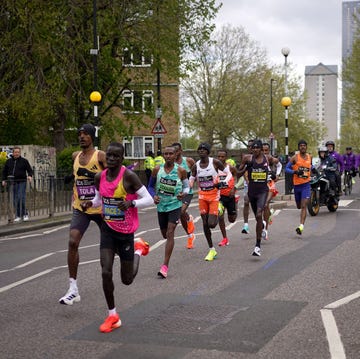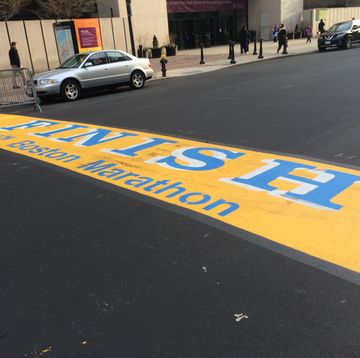DAA Industry Opt Out, Dennis Kimetto laced up a pair of running shoes and set out alone on the red clay road leading toward town.
A couple of miles into his run to Kapng'tuny, he passed elite runner Geoffrey Mutai. Impressed by Kimetto's fluid stride and turnover, Mutai approached the man to find out who he was.
"Geoffrey told me to come to the camp and [we would] train together," Kimetto says in Swahili, speaking in June through world-record holder Wilson Kipsang. "I came into a large group of athletes and tried to pick up the training."
Sometimes it's better to be lucky than good, they say. In Kimetto's case, it's been best to be both.
That chance encounter six years ago set Kimetto on track from struggling subsistence farmer to one of the fastest road racers in history. In 2012, Kimetto set the 25K world record of 1:11:18 in Berlin. Last year, he followed up a victory in Tokyo by winning the Chicago Marathon in a course-record 2:03:45, the third-fastest time ever run on a record-eligible course.
"I have been trying to concentrate much on my training, and it is really positive at this time," Kimetto says, before his third-place finish in the Olomouc Half Marathon in the Czech Republic in June.
Kimetto had always displayed a penchant for running, frequently winning schoolboy races. But life's realities prevented him from recognizing the full scope of his talent. With his family in need, he had no choice but to pursue farming maize and raising cattle for food.
"When I was doing some farming and raising cattle for business, I was finding that I wanted to really start to train [for] running because I was inspired by some top athletes like Paul Tergat," Kimetto says. "You could see that they were running good, and after, were living really good. So I decided to really start training to run so that I could also earn a living."
At first, Kimetto split his time between his home and Mutai's training camp, located in a secluded area about eight kilometers outside Kapng'tuny. Eventually he decided to train at the camp full time, which made for a difficult transition for his family because money had yet to materialize and work on the farm could not be neglected.
"My family understood what I was doing and the decision I made, and they fully supported it," he says.
There was little doubt that Kimetto's situation would soon improve.
"He is patient, and he has the passion and the enthusiasm to really train and be at the top," Kipsang says.
Kimetto won his first race in 2011, finishing the Dubai Half Marathon in 1:01:30. Three more victories, including that 25K world record and a runner-up finish to Mutai in 2:04:16 in his debut at the Berlin Marathon, followed a year later. Then came the victories in Tokyo and Chicago.
"I watched a lot of his race in Chicago, and it was fantastic," Kipsang says. "I was feeling very emotional when I saw the clock was on pace for 2:03."
Kimetto says the performance, which earned him $100,000 for the victory and a $75,000 bonus for breaking the course record, was life-altering.
"I can pay for [my siblings'] school fees," Kimetto says. "I bought a new house in Eldoret and moved my family there. I bought a good car. I increased the farming now to produce more food for the family."
Kimetto's manager, Gerard Van de Veen, has seen the change firsthand.
"After he won Tokyo and Chicago, he built a very big house, and he was proud to show me the difference between where he started and where he is now," he says.
Kipsang believes that Kimetto "really is a threat" to break his world record of 2:03:23. Kimetto believes he is capable of running faster, but he's not driven by the clock.
"I think what really motivates me to be a fighter is the fact that I come from a humble background," Kimetto says. "I try to really make sure that I achieve my best so that I can assist my family."


